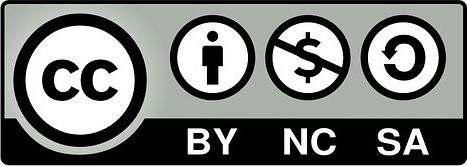Fermentación en estado sólido: una tecnología microbiana promisoria para la producción de metabolitos secundarios
DOI:
https://doi.org/10.17533/udea.vitae.414Abstract
La fermentación en estado sólido (FES) se ha usado exitosamente para la producción de enzimas y metabolitos secundarios. Estos productos están asociados con la fase estacionaria de crecimiento microbiano y son producidos a escala industrial para su uso en agricultura y en el tratamiento de enfermedades. Muchos de esos metabolitos secundarios son producidos aún en fermentaciones líquidas sumergidas (FLS), aunque a través de su producción este método ha mostrado ser menos efectivo que la FES, ya que cuando la producción a gran escala se incrementa asi mismo lo hacen los costos y la demanda energética. La FES ha mostrado que produce un producto un producto más estable, requiere menor energía, en fermentadores más pequeños que facilitan el proceso de separación de los productos (downstream). En este artículo los autores revisaron una importante área de la biotecnología, donde la evidencia reciente indica que las bacterias y los hongos creciendo bajo condiciones de FES, son capaces de suplir el crecimiento en la demanda global de metabolitos secundarios.Downloads
Downloads
Published
How to Cite
Issue
Section
License
Copyright Notice and Open Access Statement
The Journal Vitae works under the Open Access license, and the published manuscripts remain available for the public, both on the Journal's website and in databases, under the Creative Commons license, "Noncommercial Attribution" and "Share alike" systems, adopted in Colombia. Hence, when the authors agree to publish in the Journal Vitae, they will not have the right to economic retributions on publications and reproductions through different diffusion media. The documents are freely available to the internet public, permitting users to read, download, copy, distribute, print, search, or link to the full texts and pass them as data to software. The only constraint on reproduction and distribution, should be to give authors control over the integrity of their work and the right to be appropriately acknowledged and cited.
Authors declare that:
-
They are the intellectual property owners and are responsible for all the information stated in the article.
-
This manuscript has not been submitted or published in other printed or digital media. They accept the responsibility for the judgments, opinions, and points of view expressed in the published article and, therefore, they exonerate Universidad de Antioquia and Journal Vitae from any process.
-
They exempt Universidad de Antioquia and Journal Vitae from settling conflicts or disputes related to the authorship of the referred article.
-
They accept the revision of the original manuscript by suitable personnel, and they bind themselves to perform the corrections appointed or suggested by the assessors.
-
Therefore, they know the editorial process and will not bind the Editorial Board of the Journal to assume any obligations regarding the volume and issue in which the article is published.
-
They transfer the rights of publication, reprinting, and distribution of the article from the moment of its approval, in print and digital format, without the right to economic rewards, and under the licensing conditions considered relevant by Journal Vitae.
-
They fully authorize Universidad de Antioquia and Journal Vitae to submit the published material to the diverse databases and indexing systems where the Journal can be found to comply with the requirements of the regulatory authorities to maintain the national classification of journals.
-
They will assume the article publication costs established for the current issue, and they will make the payment as soon as they are informed about the volume and the issue in which the final version of the article is published.
-
After the article is published, you can share digital or printed copies in a noncommercial manner. You will be able to use the paper in your institution or company for educational or research purposes, including the use in course programs.
Conflict of interest: Authors are responsible for recognizing and disclosing any financial or other benefits that could be perceived to bias their work, acknowledging all financial support and any personal connections with potential sponsors. Examples of such conflicts include receiving research funds or honoraria, serving on advisory boards, stock ownership, or employment and consulting arrangements. Authors without such connections should clearly state that they have no financial support or personal relationships that could be perceived to bias their work. All conflicts of interest should be disclosed on the author's identification page of the manuscript.










